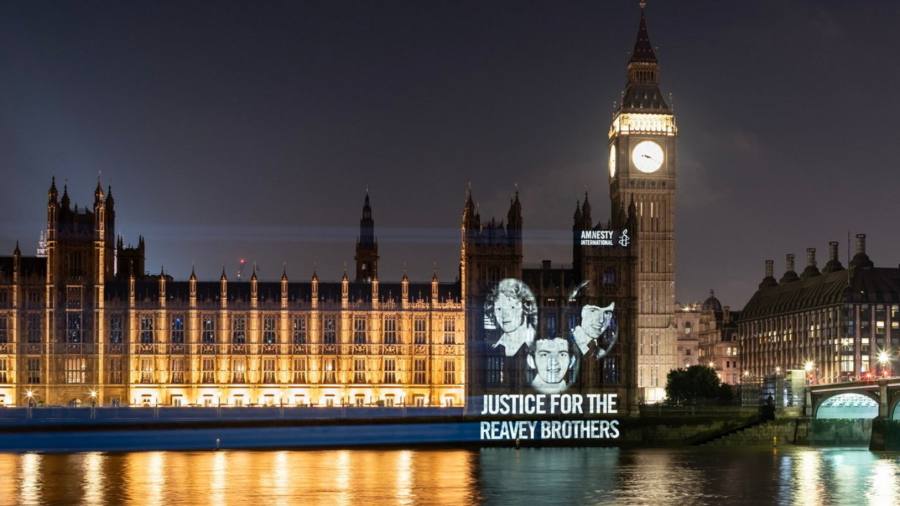
Receive free UK politics updates
We’ll send you a myFT Daily Digest email rounding up the latest UK politics news every morning.
MPs have approved a UK amnesty bill for Troubles-era atrocities in Northern Ireland, in what rights groups and relatives of victims described as a “dark day for justice”.
The legislation, which the UK has championed despite opposition from all parties in the region, as well as the Irish government, was backed by MPs in the House of Commons on Tuesday and will pass to the House of Lords to be rubber stamped, probably next week.
“This is a mistake . . . this is the wrong way of doing things,” said Ireland’s prime minister Leo Varadkar. The Irish government is considering a legal challenge to the bill, which will end new inquests into atrocities committed during the region’s three decades-long conflict.
“The government has abandoned victims in favour of protecting those who took the lives of our loved ones. There are no words to express how deep that betrayal cuts,” said Michael O’Hare, whose 12-year-old sister Majella was shot dead by a British soldier in 1976.
Chris Heaton-Harris, the UK Northern Ireland secretary, has said he believes the bill has a “stable foundation in international law”.
He has stressed the difficulty of securing convictions 25 years since the Troubles — the conflict, which involved republican paramilitaries fighting to reunite Ireland, loyalist paramilitaries committed to remaining in the UK and British security forces, was ended by the 1998 Good Friday Agreement.
Labour leader Sir Keir Starmer said that if his party were to win the UK general election, which is expected next year, it would repeal the bill.
John Finucane, an MP for nationalist party Sinn Féin, called the legislation “absolutely cynical and cruel”, noting opposition from “all the political parties in this island, human rights experts, churches, the US, UN, EU and the Irish government”.
The UK government defeated a fresh attempt to change the bill on Wednesday when MPs voted by 288 to 205 to reject a House of Lords amendment.
The upper house is expected to give up on any further changes to the bill, which was introduced in May 2022 and has been the subject of intense debate. The government says it has been improved through numerous amendments.
The bill will establish an Independent Commission for Reconciliation and Information Recovery that Heaton-Harris hoped would amass “lots of information” for families.
Advocacy group Amnesty International said it would continue to fight the bill. “It will now be over to the courts to right this historic wrong,” said Gráinne Teggart, Amnesty International UK’s Northern Ireland deputy director. “Today marks a dark day for justice,” she added.
Jim Shannon, an MP for the Democratic Unionist party, said that even if there was only “a candle of light” that someone could one day be held accountable for the murder of their loved ones: “then they need it. Today government . . . is extinguishing that light for all of those people.”